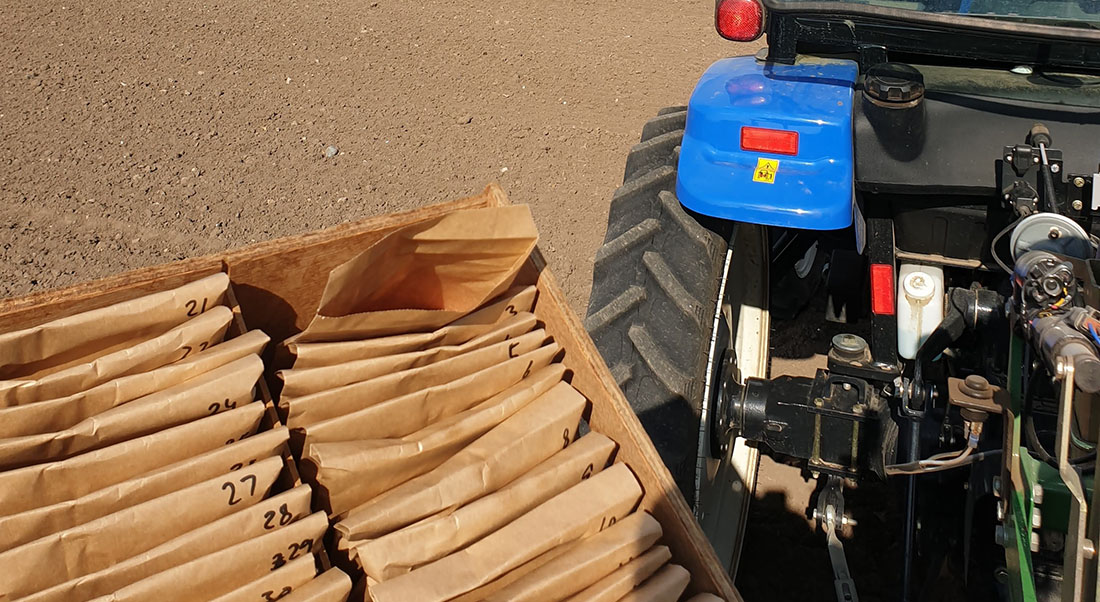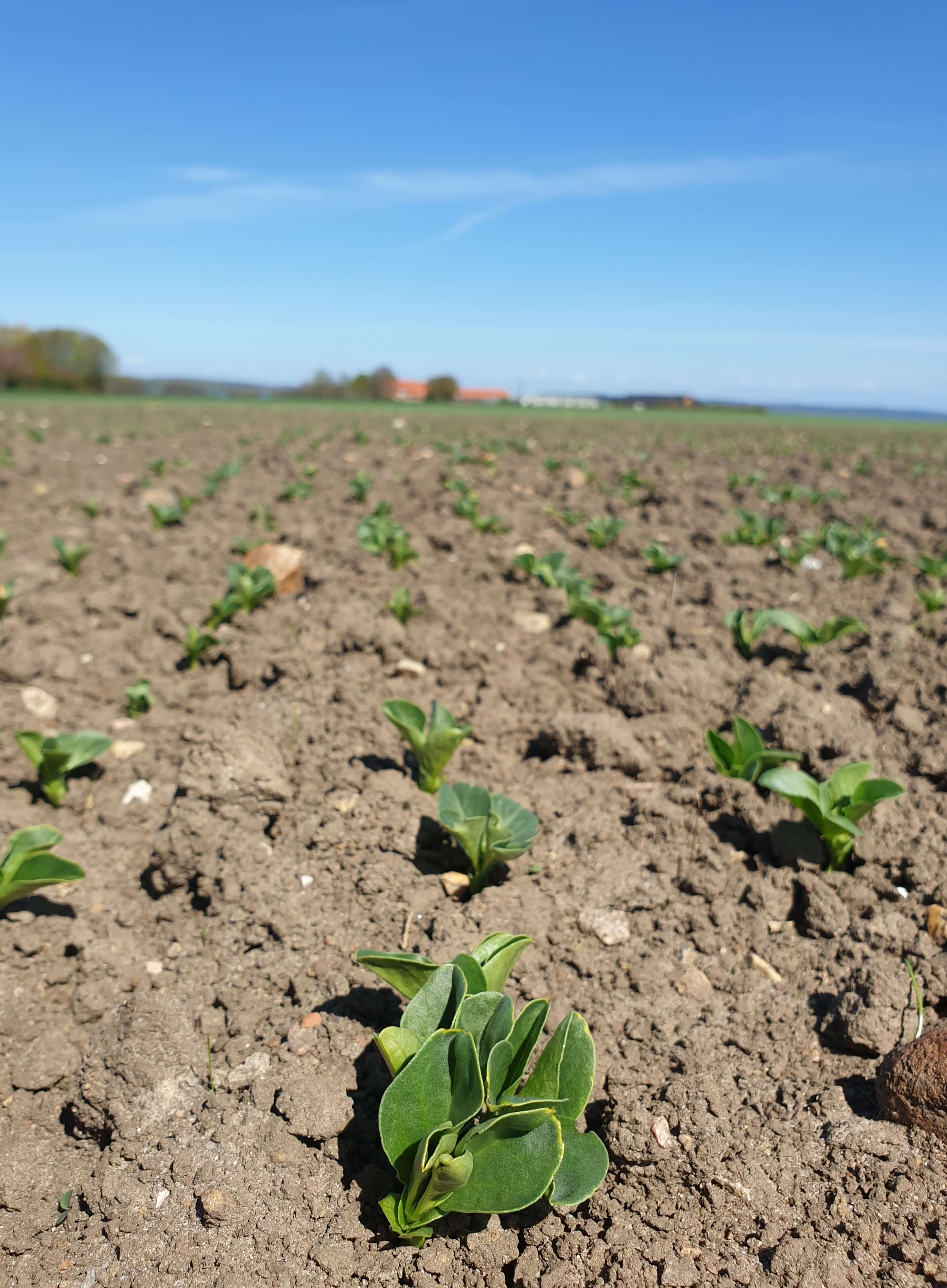Sowing the seeds for the future of plant-based foods
Seeds were planted of selected oat, pea, and fava bean varieties, as the first phase of the AQRIFood project completed. The crops are well-established and growing well.

The first phase of the AQRIFood project is complete. In Sejet outside Herning in Jutland, and in Gamborg on Funen, selected varieties of oat, pea, and fava bean will be produced conventionally and grown in small plots of only about 10 m2. Sowing of such small plots without mixing the varieties requires a high level of control, so seeds of the 3 x 10 varieties were kept in small bags and manually fed into the sowing machine one by one. The plots will hopefully produce a yield of about 4-6 kg – enough for samples and tests, but not enough for production of oat drink or pea and bean-based meat alternatives.

Because AQRIFood addresses the whole value chain - from production to consumer - development of test batches of products by the project partners Dryk, Arla Foods, Crispy Food, and Organic Plant Protein is also part of the project, and for test batches significantly larger yields are needed. For this reason, the varieties are also being produced by an organic farmer in Hammel, Northern Jutland, in cooperation with the AQRIFood partner Innovation Center for Organic Farming. The farmer has set aside about two hectares for the project, making it possible to grow the varieties in plots of about 800 m2.
Hopes for a good growing season
Danish consumers of plant-based products have in surveys displayed a preference for buying organic. This makes it beneficial to use organic raw materials for the oat drink and pea and fava bean protein-products that will be produced, tested, and evaluated during the project. It also opens the possibility of evaluating differences between organic and conventional versions of the varieties.
In the meantime, fingers crossed for a fruitful growing season so we can get the best possible raw materials for the future work in the project.
